#food growers
Text
Discussing collaborative approaches to improved food safety across sectors.
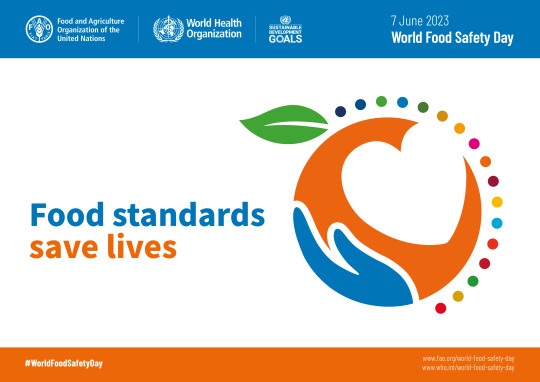
Food safety saves lives. It is not only a crucial component to food security, but it also plays a vital role in reducing foodborne disease. Every year, 600 million people fall sick as a result of around 200 different types of foodborne illness. The burden of such illness falls most heavily on the poor and on the young. In addition, foodborne illness is responsible for 420 000 preventable deaths every year.
World Food Safety Day is an important way of:
making people aware of food safety issues
demonstrating how to prevent illness through food safety
discussing collaborative approaches to improved food safety across sectors
promoting solutions and ways of being more food safe
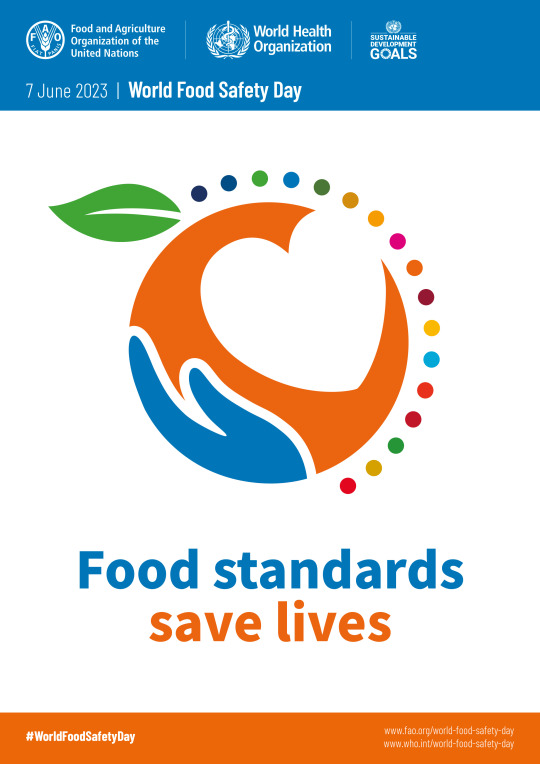
#food safety issues#world food safety day#7 june#Prevent illnesses#food safety#awareness-raising#communication strategies#food growers#food processing industry#food retailers#food cookers#food sellers#campaign
0 notes
Text
with current food prices surging, shortly after a global pandemic - where food was hard to access consistently, I'm seeing a huge boom of interest in folks orienting to growing their own food. As someone who has farmed for the last 10 years and is very close to starting my own farm, I just wanna re-widen the view a bit with some reminders.
I know these last few years pertaining to food can lead one to a reactionary clinging, or rather a deep mental attachment, to dreams of farming that includes narratives of (food/self/community) sovereignty ... but there is a bigger truth that comes with working the land. A truth not so rooted in our human needs.
MASANOBU FUKUOKA was speaking big truths in "The Natural Way of Farming" when he said,
" We often speak of "producing food," but farmers do not produce the food of life. Only nature has the power to produce something from nothing. Farmers merely assist nature.
....The objective of natural farming is non-action and a return to nature ....
Modern agriculture has created nothing from nature. Rather, by making quantitative and qualitative changes in certain aspects of nature, it has managed only to fabricate synthetic food products that are crude, expensive, and further alienate man from nature. "
Remember this as we continue, do not let the media lead to only think of food with scarcity in mind. do not attach to thoughts of sovereignty, especially food sovereignty, with scarcity in your body. lastly, do not think of farming only in terms of your needs, or only in terms of food production - there so much more that can live in relationship with working in the earth that still leads to your needs being met.
In conclusion, start with the earth. if you're going to be an earth worker, start with your relationship with the earth - not your needs. if you are dreaming of farming as a way to meet your human needs/humanity's needs, you will absolutely move through mountains of depressions which feel endless and drain you. start with the nature. Understand that we got into the chaos that is agriculture today, through prioritizing our human needs mostly. We have the power to became farmers, earthworks, growers that don't do this but it requires us to think outside of our needs only - which is hard for us humans to do. especially with the inflation hitting our food prices and our most recent hardships with food access due to Covid.
#a musing on agriculture#a reminder that natural farming is a real study#one that is overlooked cause it includes narratives of spirituality#a note to aspiring farmers/food growers#our needs are loud right now#but we've got to find ways to grow out capacity out to still take care of the earth#and the non human beings the earth is holding#truth#personal
37 notes
·
View notes
Text

1953 Pineapple Growers Association ad
#1953#pineapple#growers#association#canned#juice#vintage recipes#cerealkiller#vintage food#food#vintage advertising#vintage magazine#kitchen#magazine#1950s#50s#50s ads
54 notes
·
View notes
Text
Wouldn't it be marvellous if all the world's growers could think of growing today's food as nurturing the soil ready for next year's harvest?
"Soil: The incredible story of what keeps the earth, and us, healthy" - Matthew Evans
#book quote#soil#matthew evans#nonfiction#wouldn't it be nice#marvelous#farmers#growers#food production#nurturing#harvest
6 notes
·
View notes
Text
Grower's Tape by Griffon's Saddlebag




#griffon's saddlebag#grower's tape#magic items#uncommon#nature#plant#plants#food#healing#health#recovery#potion#potions#harvest#resources#tools
7 notes
·
View notes
Text
youtube
This panel event was originally recorded on September 18, 2020, as part of GreenThumb's international virtual event in partnership with Capital Growth in London and Toronto Urban Growers.
Hear from community gardeners and urban farmers from London, Toronto, and New York City around how gardens and farms are contributing toward these cities’ resilience, food security, and COVID-19 response. Organised by Capital Growth in London, NYC Parks GreenThumb in New York, and Toronto Urban Growers, this webinar shares lessons from across the pond on how community gardens and urban farms are responding to the COVID-19 crisis, building solidarity among neighbours, and preparing the road ahead.
Intros by organizations:
o Sarah Williams, Capital Growth, London → introduce Bill
o Bill LoSasso, NYC Parks GreenThumb → introduce Rhonda
o Rhonda Teitel-Payne, Toronto Urban Growers → introduce Melana
Welcome and intro from moderator - Melana Roberts, chairperson of the board of Food Secure Canada
Panelists:
• NYC: Karen Washington, from the Garden of Happiness, speaking about Bronx Community Farm Hubs
• NYC: Mark Leger, gardener at Phoenix Community Garden speaking about Phoenix’s food access and COVID response activities
• London: Kiloran O’Leary from Global Generation speaking about The Story Garden’s involvement in Community Harvest and other COVID responses
• London: Alice Holden, Head Grower at Growing Communities Dagenham Farm - an organic farm based in outer London growing produce for sale locally and through a box scheme, while supporting various community initiatives
• Toronto: Jessey Njau, www.zawadi.farm - backyard farmer building community in Thistletown neighbourhood
• Toronto: Isaac Crosby, Lead Hand in Urban Agriculture and Indigenous Gardens at Evergreen Brick Works
#NYC Parks GreenThumb#solarpunk#webinar#garden#gardening#urban farming#urban farm#farm#farming#Capital Growth#London#england#Toronto Urban Growers#Toronto#canada#new york#new york city#USA#covid 19#food security#community#Youtube
3 notes
·
View notes
Photo

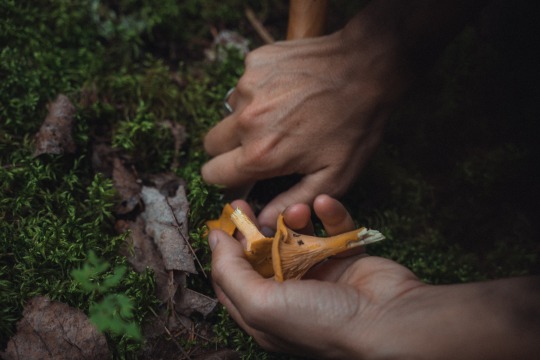

www.growers.co/
Cultivating change through stories of small-scale growers, and crafting workwear and tools made for the garden.
33 notes
·
View notes
Text
and if you could make a wish, would you wish to be gargantuan as an ant?
and if you could feel, would you feel immense faced with an atomic crowd? do you miss our unity?
and if you could feel, would you miss our pre-eukaryotic kisses? 2 microns to 200, do you understand your impossible speed? do you know the love of your white-coat, gloves-and-goggles, pipette-in-hand worshippers?
do we host well, little darlings? are my guts warmed enough for you? and if you shape my love (dantas et. al, 2021), do i shape yours? small lovelies, do you devour freely? are you still hungry? would you like more of the universe?
and if you could feel, would you feel proud of your ubiquity?
we have grown tall and dumb and ridiculous. we write of transcendental dialectics and your colonies. you crawl for 12 minutes or perhaps 12 hours. we both need our family. we both eat our proteins. we think of you. would you think of us? there is some rhyme to our lifespan's madness: we are born, raised, grow older, and raise our parents in return.
and if you could feel, would you feel proud of us? have me made you a comfortable home? do we nurse you well? is your agar plate a suitable mansion? microbial neighbours, singularly beautiful, you have created a grand engine.
and if you could want, would you want to feast with us again?
#such an odd relationship#thank you for the air we breathe and the food we eat and for our life#friends lovers children food the growers of food the takers of food enemies destroyers providers#punishers rewarders parents gods worshippers patients viruses cause of the disease cause of the cure immense and small#we are all of these things to each other
8 notes
·
View notes
Text
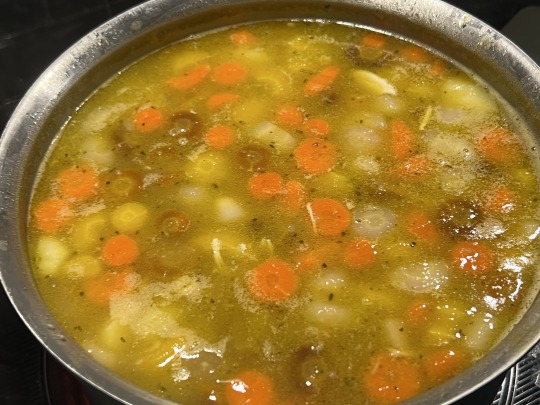
Colorful Fall stew for cooler weather 🍂🍁
#home cooking#farmers market#all local ingredients#community supported agriculture#local foods#support local growers#chicken vegetable stew#carrots#potatoes#sweet dumpling squash#comfort food
2 notes
·
View notes
Text
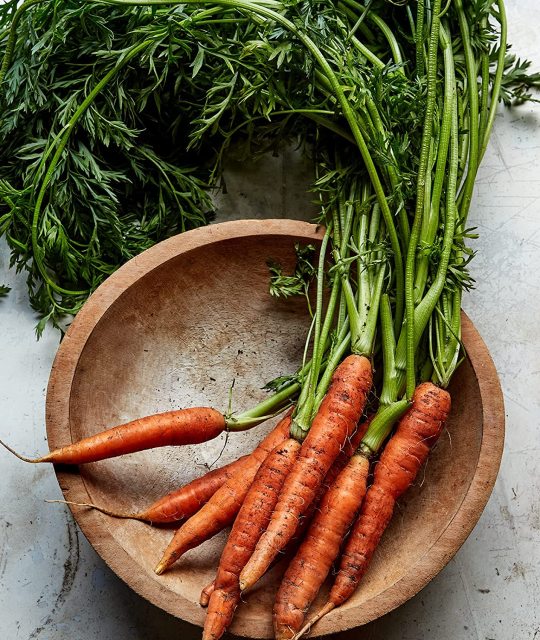
Growing your own organic carrots from seeds at home is easy and can provide you color, flavor and nutrition. Carrots are a great source of beta-carotene and antioxidants and so delicious.

This popular root vegetable performs best in cool temperatures "between 60-70˚F" and may be planted as soon as the soil can be worked in early spring.

Carrots take between 70 to 80 days to reach full maturity, so patience is needed to harvest. It can take the seeds about ten days to sprout, sometimes much longer if the seeds are covered in clay. Patience and careful watering are needed during this time.
Always choose the best carrot seeds that you can grow in your climate!
There are a wide variety of shapes and sizes of carrots you can grow, depending on your climate.
#carrot#carrots#vegetable growing#growing food#grower#grown#vegetable#vegetables#growyourownvegetables#growyourownveggies#vegetable seeds#planting seeds#seed#seeds#gardener#gardening#gardenblr#gardencore#gardenersofinstagram#gardeners on tumblr#gardenerslife#growyourownfood
7 notes
·
View notes
Text
Frozen Fruit Recall due to Listeria
Check your freezers! Sunrise Growers Inc. recalls specific frozen fruit products due to possible Listeria contamination. #foodsafety #recall
Sunrise Growers Inc., a subsidiary of SunOpta Inc., has issued a voluntary recall of specific frozen fruit products linked to pineapple provided by a third-party supplier due to the potential for these products to be contaminated with Listeria monocytogenes.
frozen mixed berries
The products were distributed via various retailers, including Walmart, and consumers are urged to check their…

View On WordPress
2 notes
·
View notes
Text
Ways to celebrate: Use our leaflets.
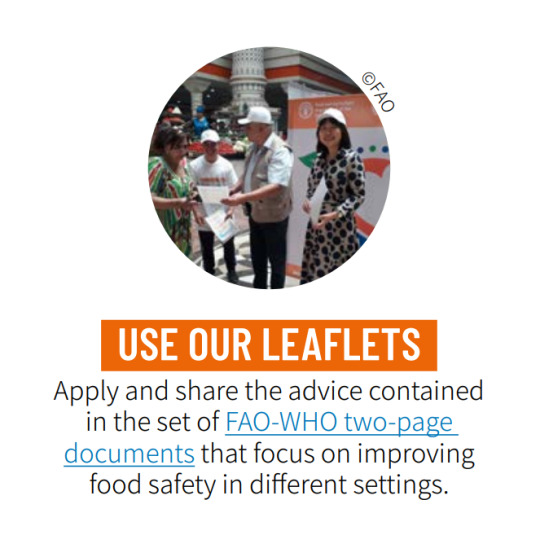
Apply and share the advice contained in the set of FAO-WHO two-page documents that focus on improving food safety in different settings.
#food safety#awareness-raising#communication strategies#world food safety day#7 june#food growers#food processing industry#food retailers#food cookers#Train staff#food sellers
0 notes
Photo

Farmers are “Outstanding in Their Field”
#farmers#agricultural growers#food supply#outstanding in their field#produce growers#farm management#corn fields#corn farmers#travel photography#traveling#travel america#muttball
4 notes
·
View notes
Text
#kevinlemnah#garden#farmerkevin#growth#nature#country#grower#farmer#itsUPexclusives#artist#builder#food
1 note
·
View note
Text
Regenerative Farming Soil Boxes - A Sustainable Solution for Greener Harvests
In a world increasingly concerned with sustainability and environmental impact, regenerative farming has emerged as a beacon of hope for the future of agriculture.
Unlike conventional agriculture, which often relies on synthetic inputs and practices that degrade soil health, regenerative farming soil boxes focuses on enhancing ecosystem resilience and vitality. It prioritizes practices such as minimal tillage, diverse crop rotations, and the use of cover crops to improve soil structure, boost biodiversity, and sequester carbon.
The role of soil boxes
Soil boxes represent an ingenious tool in the regenerative grower's arsenal. Essentially, these are small-scale containers filled with soil and organic matter, mimicking the conditions found in healthy agricultural soils. While the concept may seem simple, the implications are profound.

Education and outreach - Soil boxes serve as tangible educational tools, allowing farmers, educators, and enthusiasts to witness firsthand the processes that govern soil health. By observing the interactions between soil, water, and plant life in a controlled environment, individuals gain a deeper understanding of the intricate dynamics at play beneath our feet.
Microcosms of regeneration - Within these compact containers, regenerative principles are on full display. Beneficial microbes thrive in the rich organic matter, breaking down nutrients and fostering symbiotic relationships with plant roots. Soil aggregation, a hallmark of healthy soils, becomes evident as roots penetrate the substrate, binding particles together and enhancing water infiltration.
Research and development - Soil boxes provide a platform for experimentation and innovation. Researchers can manipulate variables such as soil composition, moisture levels, and plant species to study their effects on soil health and productivity. Insights gained from these experiments inform larger-scale agricultural practices, guiding farmers towards more sustainable and regenerative approaches.
Community engagement - Beyond their utility as educational tools, regenerative farming soil boxes foster community engagement and collaboration. Workshops, demonstrations, and outreach events centered around these miniature ecosystems bring people together to learn, share ideas, and collectively envision a future of agriculture that prioritizes soil health and environmental stewardship.
The regenerative growers, armed with soil boxes and a commitment to sustainable practices, are leading a transformative shift in agriculture.
By prioritizing soil health and biodiversity, they are not only mitigating the negative impacts of conventional farming by regenerative growers but also regenerating ecosystems and revitalizing rural communities.
Whether you are a farmer looking to enhance your soil management practices, an educator seeking to inspire the next generation of agricultural leaders, or simply a concerned citizen eager to support regenerative initiatives, soil boxes offer a tangible and accessible entry point into the world of regenerative farming. Top of Form
#regenerative growers#grow gut brain food#future of farming technology#regenerative agriculture Program
0 notes